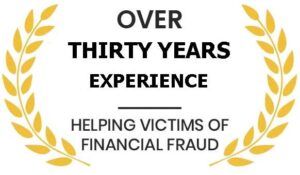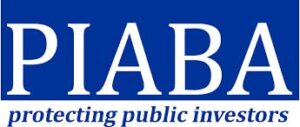FINRA And The History of Securities Arbitration
FINRA is the product of a merger of two self-regulatory organizations, the New York Stock Exchange (the “NYSE”) and the National Association of Securities Dealers, Inc. (the “NASD”), also known as NASD Regulation, Inc. SEC Release No. 34-56145 (July 26, 2007). Mandatory consumer arbitration agreements pervade every aspect of contemporary consumer life from credit card companies to rental cars.
However, since the early 1970s, and the subsequent democratization of the securities industry to include individual investors or customers, brokerage firms or securities broker-dealers have inserted mandatory arbitration clauses into customer agreements, and since 1987, and the Supreme Court’s holding in Shearson/American Express, Inc. v. McMahon, 482 U.S. 220 (1987), these arbitration agreements are enforceable, and instead of filing a lawsuit in state or federal court, customers or investors are required to arbitrate these claims before what has been dubbed “Wall Street’s Secret Court.”
Absent the existence of an arbitration agreement by the customer, claims arising under the federal securities laws or where there is complete diversity of citizenship between the parties (and a sufficient amount, $150,000 in controversy) would otherwise be litigated in federal court, and could include pendant common law claims for negligence, breach of fiduciary duty, common law fraud, or the like. Claims where federal jurisdiction does not apply, including state common law or state securities law claims, which can also be included as pendant or supplemental claims in a federal case, are generally required to be filed in state court.
Brokerage firms or securities broker-dealers, as a condition of securities registration and their membership with a self-regulatory organization, such as FINRA, are required to submit all controversies with public customers to arbitration before FINRA, however, when it suits them, and they think they will be better off in state or federal court, because of the availability of motions to dismiss, heightened pleading standards, or motions for summary judgment, which do not exist, except for very limited circumstances in FINRA arbitration, there can be considerable controversy as to who is a “customer,” or was it their “customer.”
Proponents of mandatory securities arbitration that it is a quick, easy, cost effective, and efficient way for customers or injured investors to bring claims against their stockbrokers or investment professionals, which may be somewhat true. However, at the same time, the mandatory arbitration of customer claims also insulates securities broker-dealers or brokerage firm defendants from juries, and generally the prospect of punitive damages for the most outrageous misconduct.
The FINRA Securities Arbitration Process
For some, the best part about FINRA arbitration, unlike proceedings in any state or federal court, at least from a securities industry perspective, the proceedings are secret. The identities of the parties are secret. The pleadings are secret. Discovery is secret, and the trial or evidentiary hearing before a live FINRA arbitration panel are also secret.
FINRA arbitration panels are required to render a decision, but are not required, unless the parties agree and pay extra, to explain their decision, and only in the rarest of most rare occasions, will any court, where these claims would otherwise were heard, is unlikely to disturb any FINRA arbitration award or second guess any FINRA arbitration panel. Instead of aggrieved investors having their claims decided by a jury of typically six citizens, in FINRA securities arbitration, aggrieved investors are required to have their claims decided by a panel of one or three arbitrators depending upon the size or amount of their claim.
Injured investors with losses of less than $25,000 are not entitled to a live hearing where they can appear, testify under oath, cross examine, or even introduce evidence. Instead, it is done on the papers, and decided by one arbitrator based upon the parties’ written submissions.
Under the current rules, and the Code of Arbitration Procedure, the FINRA filing fee and hearing session deposit for cases up to $100,000, where the parties are only entitled to one arbitrator can range from $775 to $975. Claims by injured investors for an amount in excess of $100,000 are required to be heard by a Panel of three arbitrators.
The FINRA filing fee and hearing session deposit for cases range from $1,425 to $2,000. The arbitrators are paid $600 per day, plus expenses, and the chairperson receives an additional $125 per day. A single arbitrator can also earn $250 for deciding a discovery motion or contested subpoena. https://www.finra.org/rules-guidance/rulebooks/finra-rules/12214
Who Are the FINRA Arbitrators?
Much has been written about who are typical FINRA arbitrators. Until relatively recently, at least one arbitrator on any three arbitrator FINRA arbitration panel was required to be an industry or non-public arbitrator (which sometimes may be useful). The remaining arbitrators, or all other non-industry arbitrators are “public arbitrators.”
Evidence suggests that aggrieved investors prevail more often by litigating their claims in arbitration before FINRA with an arbitration panel comprised solely of non-industry or “public arbitrators.” As a general matter, public arbitrators are typically lawyers, accountants, business persons, or other professionals. All arbitrators are required to undertake FINRA arbitration training.
Until very recently, as a result of FINRA’s arbitrator recruitment efforts, most FINRA arbitrators were older white males. However, good or bad, many of these new recruits lack law degrees, and are not very experienced or sophisticated in these matters. Much like everything else in life, there are good FINRA arbitrators and bad FINRA arbitrators.
Many FINRA arbitrators become arbitrators, or serve or seek to serve on FINRA arbitration panels because it looks good on their resume. Maybe they are mediators, or have some other related business, and they think being a FINRA arbitrator gives them professional credibility.
Many other FINRA arbitrators become arbitrators, or serve or seek to serve on FINRA arbitration panels because, good or bad, they have an agenda, and as with everyone, they have their own socioeconomic biases, or preconceived notions of justice, and how the system ought to work. Some are just “want-to-be” judges, who will never be judges, but get to play one.
Others are just people who want that $600 per day to supplement their income, or are retired, their wives want them out of the house, and they get to put on a suit to attend FINRA arbitration hearings. Generally, these are the same arbitrators that are reluctant to rule against securities industry offenders, or award punitive damages or attorney’s fees, because they are afraid of not being picked or favorably ranked by the parties for their next arbitration. With that being said, by and large, most FINRA securities arbitrators are smart, conscientious, and at least they believe are doing the right or equitable thing.
In either event, probably the most important element or the most important issue in any arbitration, sometimes more important than the facts in any case, is “who are the FINRA arbitrators.” In FINRA arbitration, following the appearances of the parties, they are provided supposedly a randomly generated list of proposed arbitrators.
Smaller cases for less than $100,000 are provided ten proposed arbitrators. In every case, for every proposed arbitrator, the parties are given a summary of that person’s educational and occupational background, the prior awards that they have rendered, a list of cases they are currently assigned, a list of potential conflicts and affiliations, and a brief narrative about themselves.
In some cases, the information provided by FINRA or the arbitrators themselves may not be complete or accurate. At least one court, where in fact, the arbitrator’s disclosure materials failed to disclose that the arbitrator’s husband was on the board of the related respondent/defendant company, the U.S. Court of Appeals for the Third Circuit refused to vacate the resulting award because that information was publicly available, and that the parties ought to know not to trust FINRA.
In any event, counsel is always well advised to investigate a potential arbitrator’s websites, social media pages, and political affiliations. For cases in excess of $100,000, the parties are provided a list of thirty-five proposed arbitrators. Ten of these thirty-five proposed arbitrators are “chair qualified.” Fifteen of these proposed arbitrators are not necessarily “chair qualified,” and the remaining ten proposed FINRA arbitrators, have some affiliation, to the securities industry (including typically lawyers that represent investors).
The parties are able to strike or eliminate up to four arbitrators from the first group, nine arbitrators from the second group, and all ten of the last group with securities industry associations. If there are more than two parties, or all the prospective arbitrators have been stricken, FINRA will supposedly, at random, assign an arbitrator who can only be challenged for cause or an actual conflict of interest.
The FINRA Securities Arbitration Timeline
Generally, about thirty days after arbitrator selection has been completed and an arbitration panel has been appointed, FINRA will schedule an Initial Pre-hearing Conference, where in addition to the confirmation of the parties’ acceptance of the FINRA arbitration panel, the final hearing dates, typically three to four days depending on the complexity of the case, will be set.
Discovery deadlines and motion deadlines will be set. FINRA suggests that matters ought to be scheduled for a final hearing within nine months of the Initial Pre-hearing Conference. However, most typically, because of discovery limitations and the parties’ schedules, FINRA arbitration claims generally proceed to a final hearing within twelve to fifteen months from the date the Statement of Claim was filed.
The Importance of Discovery
Perhaps just as important or maybe more important than arbitrator selection, is the ability to obtain important discovery from the securities broker-dealer or brokerage firm. In FINRA securities arbitration, the securities broker-dealer or brokerage firm will generally go to great lengths to conceal or hide the most important documents that they have which support the aggrieved investor’s case.
Even when the parties have agreed to confidentiality, the securities broker-dealer or brokerage firm will generally obstruct all reasonable efforts to obtain important, relevant discovery, under the notion or pretext that the documents sought are subject to some real or imagined privilege, or are too burdensome to produce.
Since 1999, FINRA has published a Discovery Guide, which in 2011 was incorporated into the FINRA Code of Arbitration Procedure, and although it has changed throughout the years, generally provides for the production of certain presumptively discoverable documents for both the securities broker-dealer or brokerage firm, and the customer investor.
The Discovery Guide also provides for the discovery of specific documents in “product cases,” where the firm sold a particular investment product, and generally failed to conduct its “due diligence,” or otherwise misrepresented or failed to disclose material information, including risk, regarding a particular investment product.
The Discovery Guide also provides for the production of certain categories of presumptively discoverable documents from investors, such as their tax returns, other securities accounts, resumes, loan applications, or other documents that may assist the securities broker-dealer in proving that the investor was a rabid gambler or risk-taker, lied on a loan application, or was rich and sophisticated, to the point they were unjustified for relying upon the bad investment advise of the stockbroker, or could lose the money they invested anyway.
In any event, in most cases, the quest for relevant documents is always controversial, and generally requires discovery motions to be filed, and intervention by the FINRA arbitration panel, typically the chair, to hear and determine discovery related motions, including motions to compel and motions for sanctions. In one case, recently, Morgan Stanley was ordered to pay $3 million in punitive damages for concealing documents in discovery. Unfortunately, it happens all the time and is not isolated to one securities firm. This was not the first time. Morgan Stanley just got caught.
The Final Hearing and Decision
As stated above, once discovery is completed, a FINRA securities arbitration claim will proceed to a final hearing. Just like a trial that one may expect in a court, at a FINRA securities arbitration hearing, the parties will make opening statements, call witnesses, cross-examine witnesses, seek to introduce evidence, and make closing arguments.
Generally, a FINRA securities arbitration panel will render an award or decision with a few weeks following a final hearing. As stated above, unless the parties agree and pay extra, FINRA securities arbitration panels are not required to explain their decisions and generally only provide or state “claim denied,” or make a specific monetary award for damages. Often the rationale underlying a specific monetary award is obscure, and may the product of a compromise or apportionment of responsibility by the panel.
Sometimes, and increasingly often, securities broker dealers are shuttered by regulators, their stockbrokers and principals are barred, or they become insolvent from the firm wide recommendation and sale of defective financial products, and alternative investments. In those cases, those FINRA Arbitration Awards, which must be confirmed as a judgment in a court of law, are uncollectible.
However, unlike, a verdict or decision by any court, which is appealable as a matter of right, FINRA securities arbitration awards, absent the most egregious circumstances, are virtually unappealable. You may appeal, but generally, perhaps 99% of the time, you will lose. Courts see granting the appeal or vacatuer of arbitration awards as a slippery slope, in that if every party dissatisfied with an arbitration award appealed, all the utilities associated with arbitration would disappear.
The same hold true for both sides. Improvident appeals can also lead to the imposition of attorney’s fees and costs.
The Guiliano Law Group, P.C.
For more than thirty years, our practice has been limited to the representation of investors in connection with claims against securities broker-dealers, investment professionals, and financial institutions for fraud, negligence, the sale of unsuitable investments, defective financial products, Ponzi schemes, cybertheft, breach of fiduciary duty, and the failure to supervise.*
*Nicholas J. Guiliano has an“AV” Rating,” (Highest Rating in Both Legal Ability & Ethical Standards) and Client Champion Martindale Hubbell. AVVO Rating of 10 (Superb), AVVO Five Star Rated Client’s Choice Award, and for more than a decade, Nicholas J. Guiliano has also been honored as one of America’s Most Honored Lawyers (Top 10% Nationwide).





OUR PRACTICE AREAS
FINRA Arbitration
The litigation of individual and group investor claims against securities broker-dealers and investment professionals adjuducated in arbitration before the Financial Industry Regulatory Authority.
Defective Financial Products
Alternative Investments, Promissory Notes, Structured Products, High Yield Bond Funds, Non-Marketable Real Estate Investment Trusts, Inverse and Leveraged ETFs, the Failure to Conduct Due Diligence.
Unsuitable Investments
Speculative or High Risk Investment Recommendations, Unsuitable Investment Strategies, Low Priced Securities, Customer Specific Unsuitability, Inappropriate Investment Recommendations.
Stockbroker Misconduct
Breach of Fiduciary Duty, Churing, Unauthorized Trading, Fraud, Stockbroker Theft, Ponzi Schemes, the Sale of Unapprovied investments.

